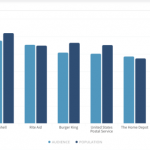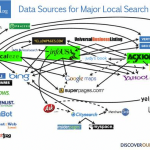Google To Use Location Data To Serve Local Search Results
Google To Use Location Data To Serve Local Search Results
by Laurie Sullivan @lauriesullivan, October 30, 2017
Localized search results now live in the phone. Google ditched top-level domain (TLD) names such as Google.co.uk for England or Google.ng for Nigeria as a trigger to serve local data in search results, and will now rely on location-based triggers from the mobile phone to serve up local search query results.
When the phone is in Mountain View and the user visits google.co.uk, the results will still serve up local results from northern California.
The change does not affect ads in Search, so marketers don’t need to do anything different with this launch.

It should make understanding geo-performance easier, which makes analysis easier, said David Grow, digital media director at Chacka Marketing.
For Google, the change affects the way the company will label country services on the mobile web, the Google app for iOS, and desktop Search and Maps. It means the country service will no longer be indicated by domain. By default, those searching on Google’s engines will see country services that correspond the location of the phone.
Phones in the U.S. will automatically see country services for the United States. If the person using the phone travels to Australia, the country services will change along with the traveler.
About one in five searches on Google is related to location, so providing locally relevant search results is an essential part of serving marketers the most accurate information, Evelyn Kao, product manager at Google, wrote in a blog post.
Users can still change the location manually through the settings menu at the bottom of google.com, similar to the way that YouTube, Gmail, Blogger, and Google Earth work.
“While this update will change the way Google Search and Maps services are labeled, it won’t affect the way these products work, nor will it change how we handle obligations under national law,” writes Kao.
The update will ensure that those searching for information get the most relevant results based on the phone’s location, and is consistent with how Google already manages the data it returns on the company’s other services.
MediaPost.com: Search Marketing Daily
(52)











